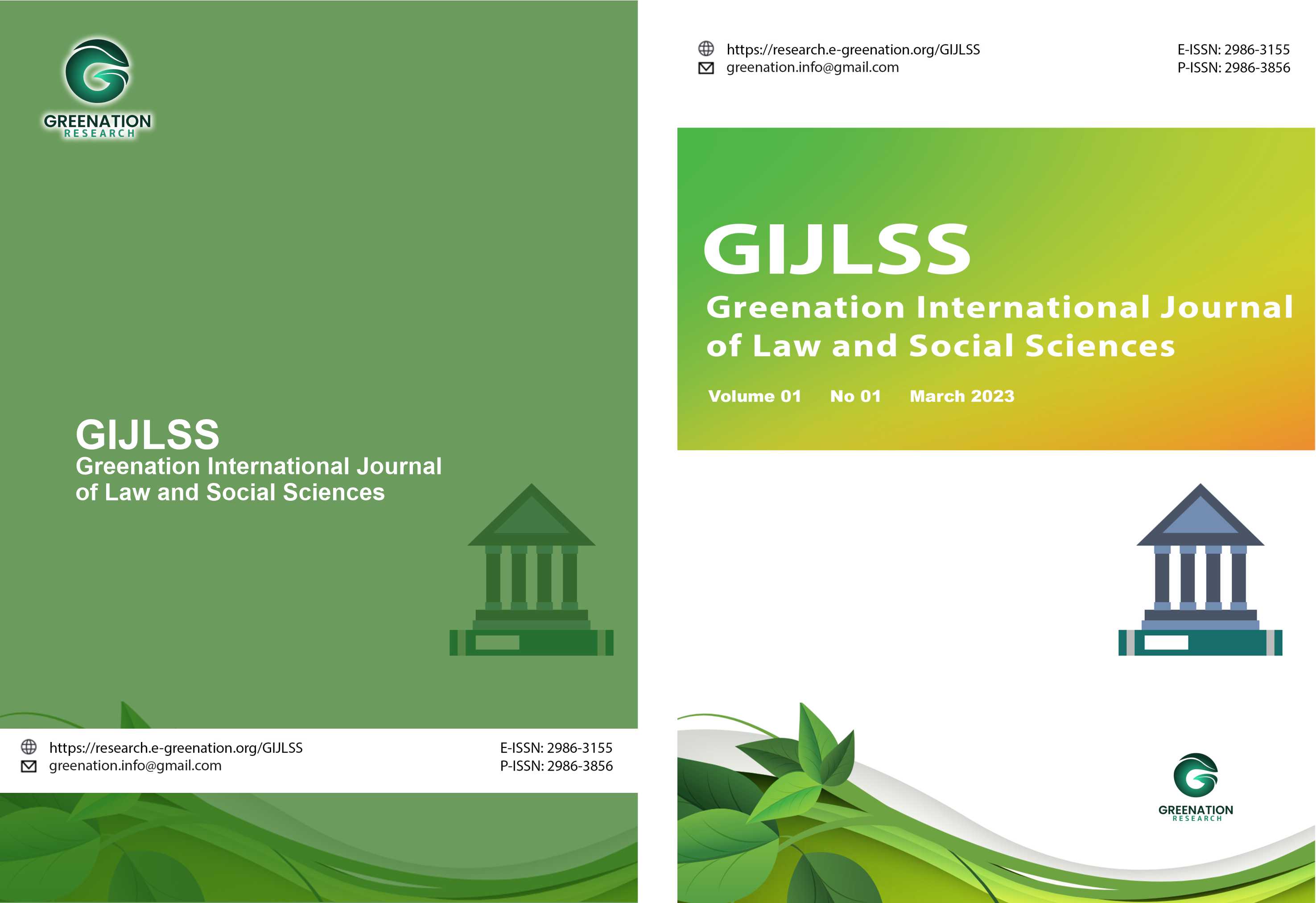Implementation of Article 28e (3) of The Constitution of The Republic of Indonesia Year 1945 on The Restriction of The Right of Assembly in Law No. 17 of 2013 about Community Organizations
DOI:
https://doi.org/10.38035/gijlss.v3i2.413Keywords:
Constitutional Rights, Freedom of Association, Social OrganizationAbstract
The Republic of Indonesia's 1945 Constitution's Article 28E, paragraph (3), guarantees the right to freedom of organization and assembly. The purpose of this study is to investigate and evaluate the juridical aspects of these rights in the context of the establishment and implementation of Community Organization activities in Indonesia. The research uses normative method with legislation, historical, and comparative approach. The results of the analysis showed that although the right to association is constitutionally recognized, practices on the ground still face various obstacles, such as unilateral dissolution, restrictions by the state, as well as regulations that have the potential to curb organizational freedom. On the other hand, the state also has the obligation to uphold the integrity of state ideology and public order. Thus, it is necessary to strike a balance between the state's power and the defense of citizens' rights in organizing public organizations. Recommendations, the need for fair law enforcement, improved regulation, and increased legal awareness in the community so that freedom of association can be realized effectively and responsibly.
References
Aditya Putra Setiawan & Agus Riwanto, 2020, Analisis Terhadap Pembubaran Organisasi Kemasyarakatan Dalam Perspektif Hak Asasi Manusia, Vol. 4 No. 3.
Bahder Johan Nasution, 2014, Negara Hukum dan Hak Asasi Manusia, Bandung: CV. Mandar Maju
Bayu Marfiando, 2020, Pembubaran Hizbut Tahrir Indonesia (HTI) Ditinjau dari Kebebasan Berserikat, Vol. 14 No. 2.
Dwi Putranto Priyono & Wati Nilamsari, 2021, Penyalahgunaan Hak Dan Wewenang Organisasi Masyarakat, Vol. 5 No.2.
Indrina Ertanti, 2021, Konfigurasi Politik Pada Undang-Undang Nomor 16 Tahun 2017 Tentang Organisasi Kemasyarakatan Sebagai Produk Hukum Di Indonesia, Vol. 7 No. 2.
Jimly Asshiddiqie, 2006, Kemerdekaan Berserikat, Pembubaran Partai Politik, dan Mahkamah Konstitusi, Sekretariat Jenderal dan Kepaniteraan Mahkamah Konstitusi RI, Jakarta: Konstitusi Press.
Latipulhayat, Atip. 2017. Due Process of Law, Jurnal Ilmu Hukum Padjajaran, Vol. 4 No. 2.
Majda El Muhtaj, 2005, Hak Asasi Manusia dalam Konstitusi Indonesia, Jakarta: Kencana.
Muhammad Beni Kurniawan, 2018, Konstitusionalitas Perppu Nomor 2 Tahun 2017 tentang Ormas Ditinjau dari UUD 1945, Vol. 15 No. 3.
Muhammad Fauzan, 2014, Pembangunan Demokrasi Indonesia Pasca Reformasi, Politik Hukum di Indonesia Pasca Reformasi: Membangun Demokrasi yang Berkeadilan, Yogyakarta: UGM Press.
Muhammad Reza Winata, 2018, Politik Hukum Dan Konstitusionalitas Kewenangan Pembubaran Organisasi Kemasyarakatan Berbadan Hukum Oleh Pemerintah, Vol. 18 No. 4.
Salim H. Sidik, 2012, Hukum Tata Negara Indonesia, Jakarta: Sinar Grafika.
Siti Nurbaya, 2013, Pengertian dan Prinsip-prinsip Good Governance, Good Governance dan Legal Framework, Vol 31 No. 2.
Sri Istiawati, 2012, Partai Politik Dan Lembaga Swadaya Masyarakat Eksistensi Dan Pengaruhnya Dalam Pembuatan Hukum, Vol. 5 No. 1.
Sri Soemantri, 1986, Prosedur dan Sistem Perubahan Konstitusi, Jakarta: Alumni.
Syahrul Mubarak & Azman Arsyad, 2021, Pembubaran Ormas Islam oleh Pemerintah; Studi Komparatif Undang Undang Ormas dan Hukum Islam, Vol. 2 No. 3.
Tim Redaksi Laksana, 2017, Kumpulan Lengkap UU Ormas dan Yayasan, Yogyakarta: Laksana.
Undang-Undang Dasar Negara RI Tahun 1945 (UUD NRI 1945).
Undang-Undang Republik Indonesia Nomor 12 Tahun 2011 Tentang Pembentukan Peraturan Perundang-Undangan.
Undang-Undang Republik Indonesia Nomor 16 Tahun 2017 Tentang Penetapan Peraturan Pemerintah Pengganti Undang-Undang Nomor 2 Tahun 2017 tentang Perubahan atas Undang-Undang Nomor 17 Tahun 2013 tentang Organisasi Kemasyarakatan Menjadi Undang-Undang
Undang-Undang Republik Indonesia Nomor 17 Tahun 2013 Tentang Organisasi Kemasyarakatan.
Downloads
Published
How to Cite
Issue
Section
License
Copyright (c) 2025 Evi Oktarina, Muhamad Yosi Agustian

This work is licensed under a Creative Commons Attribution 4.0 International License.
Copyright :
Authors who publish their manuscripts in this journal agree to the following conditions:
- Copyright in each article belongs to the author.
- The author acknowledges that the Greenation International Journal of Law and Social Sciences (GIJLSS) has the right to be the first to publish under a Creative Commons Attribution 4.0 International license (Attribution 4.0 International CC BY 4.0).
- Authors can submit articles separately, arrange the non-exclusive distribution of manuscripts that have been published in this journal to other versions (for example, sent to the author's institutional repository, publication in a book, etc.), by acknowledging that the manuscript has been published for the first time at GIJLSS.























